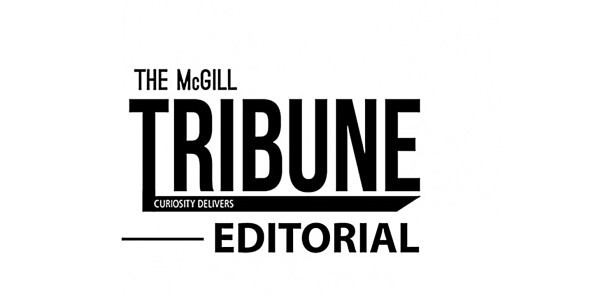Last Thursday, McGill University finally gave the response our community needed to hear on sexual assault. The message, a Media Relations Office email sent on behalf of Ollivier Dyens, deputy provost (Student Life and Learning), represented a first step towards the administration heeding the calls for change that have been heard on campus in the wake of reports revealing that three former Redmen football players had been charged with a sexual assault that took place in September 2011.
Thursday’s statement announced a set of important changes: the hiring of a new co-ordinator reporting to the Dean of Students, a public forum to be held in mid-January on sexual consent, and a promise to hold annual forums each October on issues of safe space policies. Most importantly, the message promised to clarify the meaning of “the McGill context” with regards to disciplinary policies—this is particularly important because this concept was used by the administration to justify its evasive initial response to the situation following the original Gazette report.
Even more notable in the message was a statement acknowledging the importance of the presumption of innocence in the criminal justice system, and how that is not at odds with taking accusations and survivors of sexual assault seriously. Had this been the administration’s original response to the situation, the reaction on campus—and perhaps the stance of our editorial board—might have been different. In the message, even Dyens recognized the inadequacy of the initial response.
This message represents a refreshing hint of the changes we hoped for in our first editorial of the year. From what we can see so far, administrators seem to be taking student opinions more seriously than in the past few years; recognizing and consulting with student-run resources like the Sexual Assault Centre of the McGill Students’ Society (SACOMSS) is a positive first step. It should be noted that staffing a new position in this time of budget cuts is a demonstration that the university at least seems to be taking these issues seriously
However, our praise of this response is tempered by the need for the university to deliver on the promises made here. How effective will this new co-ordinator be, and will the person be held accountable to their stated duties? What will come out of the forum next month, or the promised annual forums? As demonstrated by last year’s forums soliciting comment on the Provisional Protocol on Protests, oftentimes “consultation” consists of forums that are, as this newspaper said at the time, “poorly publicized, poorly timed, and poorly attended.” The documents that emerged from these purported consultations were, for the most part, barely changed. It’s easy for the administration to say that it is listening to students. Hopefully, it will also be taking notes.
Much as the administration needs to deliver on these promises, students also need to hold their end of the bargain; students should be empowered to continue to tell administrators what to do about these issues, and students should attend these forums. In the end, what we think does not matter as much as what you think, and the values you want this university to adhere to in these matters. While much of the attention in the wake of this particular case has focused on athletes and a supposed “sports culture,” students and the administration must be careful to avoid tailoring policies to the specifics of this case, disregarding the numerous other settings and situations in which sexual assault can and does happen. Not only would such a focus be unfair, it would prevent us from turning this incident into a catalyst for broader positive change in the university’s disciplinary policy.











Pingback: A Campus Conversation: Sexual assault policy | McGill Tribune